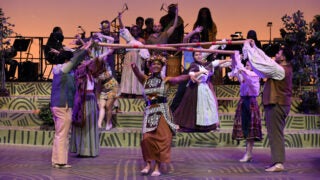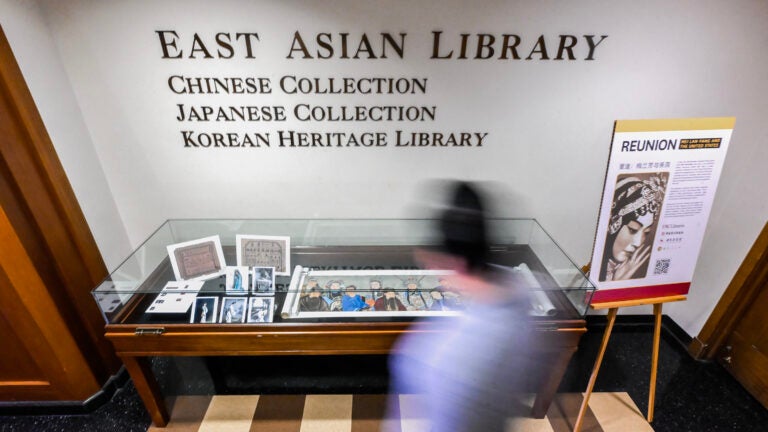
The exhibition is now open at the USC East Asian Library. (USC Photo/Gus Ruelas)
Reunion after 94 years: Art exhibition at USC East Asian Library commemorates Peking Opera legend Mei Lan-Fang
Rare photographs and historical materials bring to life Mei Lan-Fang’s legendary 1930 tour of the United States and his brief visit to USC.
Bright phoenix crowns and ornate robes are a rare sight at USC.
However, a traditional Peking Opera performance with full makeup and costumes from the LA Youth Peking Opera Troupe entertained students and faculty at the USC Doheny Memorial Library on Sept. 13.
The performance marked the opening of the Reunion: Mei Lan-Fang and the United States exhibition. Highlighting Mei Lan-Fang, a legendary Peking Opera artist, the exhibition — co-organized by USC Libraries and the China National Academy of Arts — commemorates Mei’s historic visit to the United States in 1930, when he received an honorary doctorate from USC.
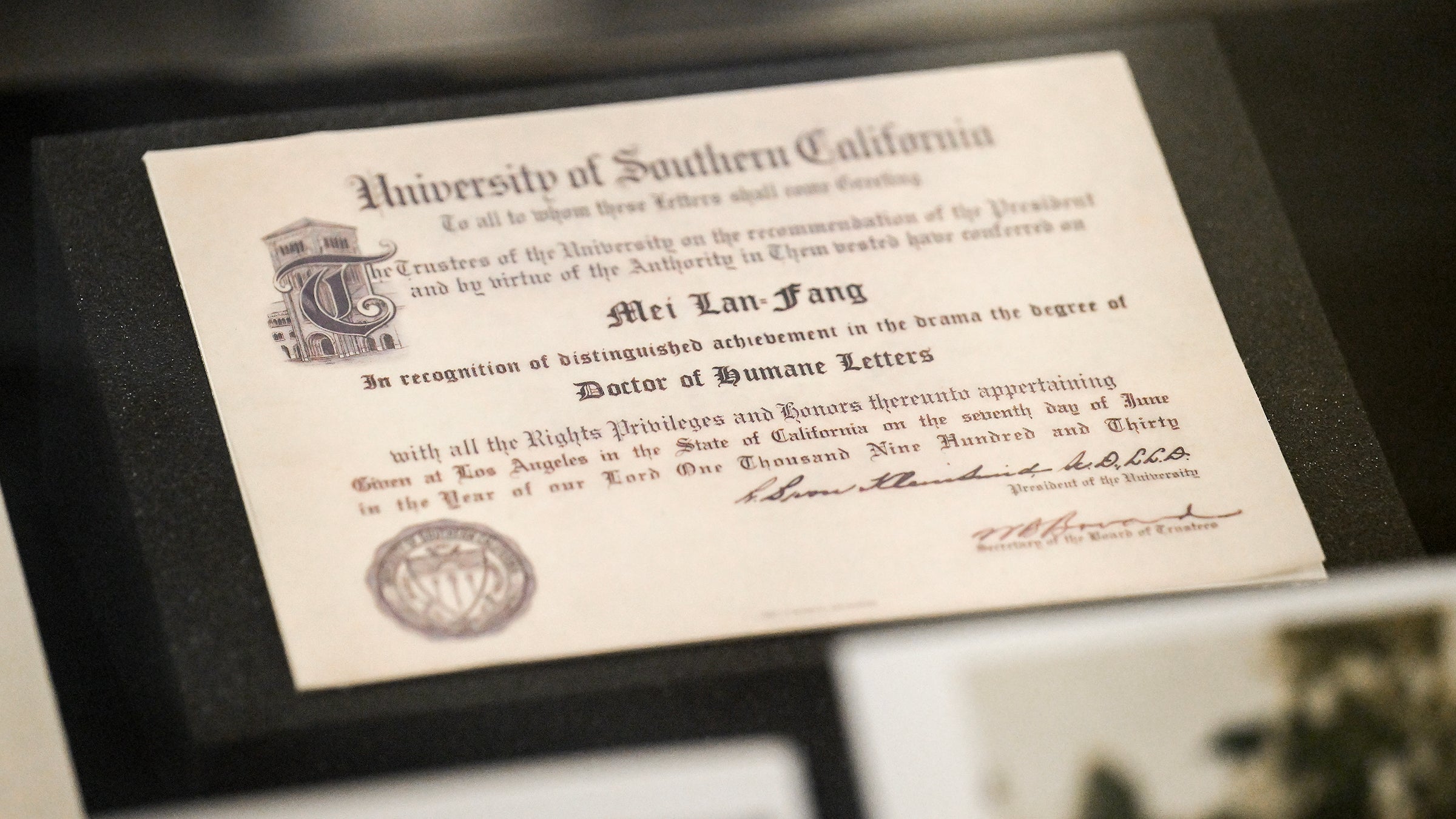
The exhibition features numerous photos and materials from Mei’s U.S. tour, including a bilingual Chinese-English scroll depicting key movements from Mei’s iconic play Gui Fei Zui Jiu (The Drunken Beauty), created specifically for the American audience of that era.
“We are delighted to showcase Mei Lan-Fang’s artistic value to contemporary audiences through this exhibition,” said Melissa Just, dean of the USC Libraries. “Building on his pioneering journey in 1930, this exhibition provides all of us with a wonderful opportunity for renewed cultural exchanges between China and the United States.”
Mei was a pioneer in spreading Peking Opera around the world, performing in Japan, Europe and the United States from the 1910s to the 1950s. During his 1930 tour to the United States, he met many of his Hollywood contemporaries, including Charlie Chaplin and Mary Pickford.
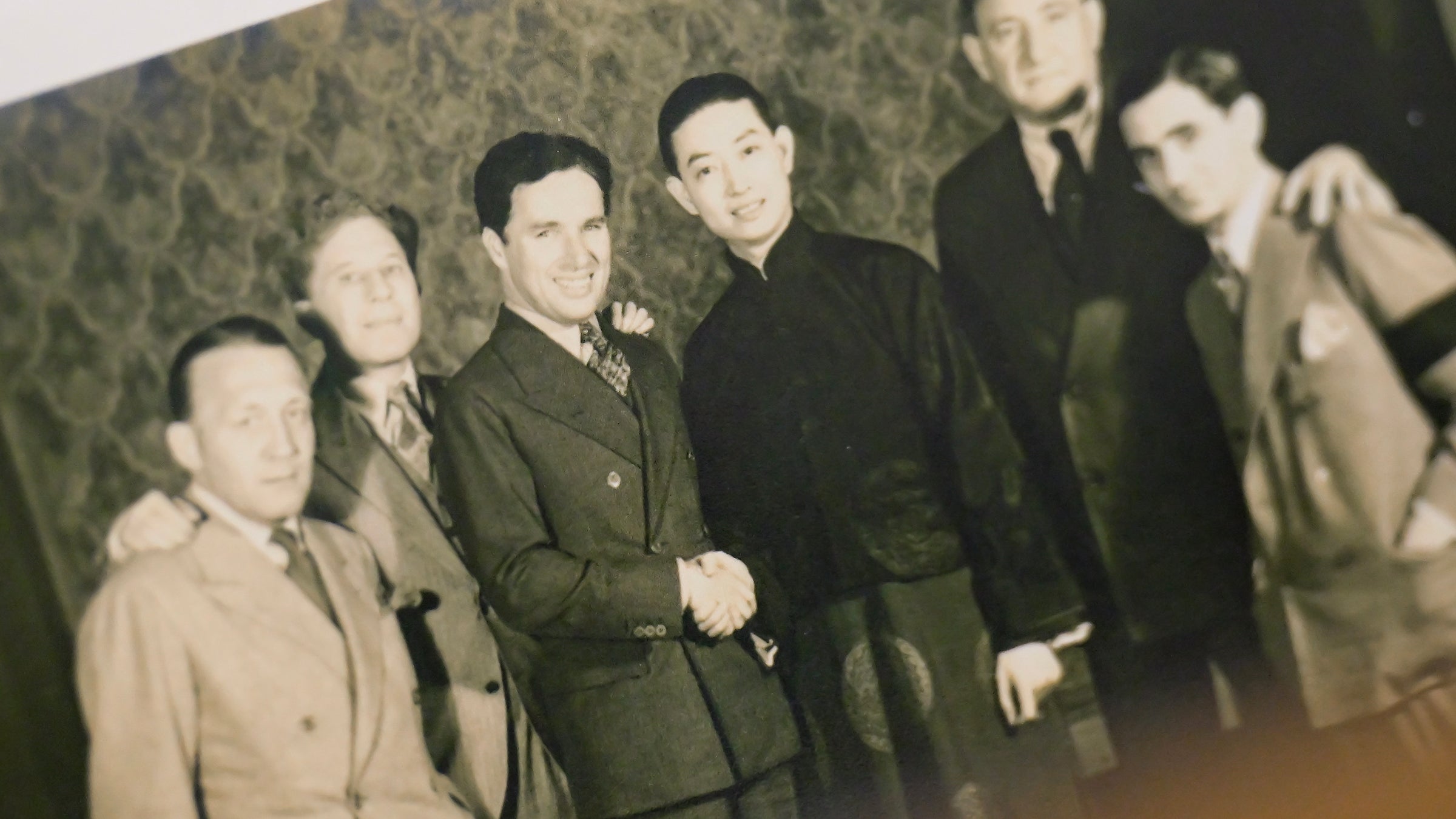
Mei’s U.S. tour at the time was a spectacle for American audiences but also an effort to showcase China’s national image.
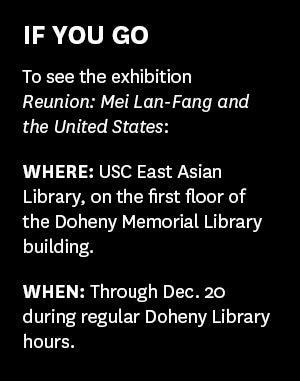 “Mei’s trip to the U.S. gave most of the American audience at the time their first glimpse of this art form,” said Joshua Goldstein, professor of history and East Asian languages and cultures at the USC Dornsife College of Letters, Arts and Sciences. “Mei excelled in performing the ‘dan’ roles — or, female lead roles — in Peking Opera and, despite language barriers, gained international recognition through his costumes, body movements and dance.”
“Mei’s trip to the U.S. gave most of the American audience at the time their first glimpse of this art form,” said Joshua Goldstein, professor of history and East Asian languages and cultures at the USC Dornsife College of Letters, Arts and Sciences. “Mei excelled in performing the ‘dan’ roles — or, female lead roles — in Peking Opera and, despite language barriers, gained international recognition through his costumes, body movements and dance.”
Goldstein, who has spent decades studying Peking Opera and Mei, authored Drama Kings: Players and Publics in the Re-Creation of Peking Opera 1870-1937, an in-depth look at Mei’s U.S. tour, its impact on global Peking Opera promotion and Mei’s artistic achievements.
“At a time of international tensions when Chinese people and culture were facing much discrimination in the U.S., Mei won acclaim for Chinese culture, often connecting his tour with a mission to promote peace,” Goldstein added.
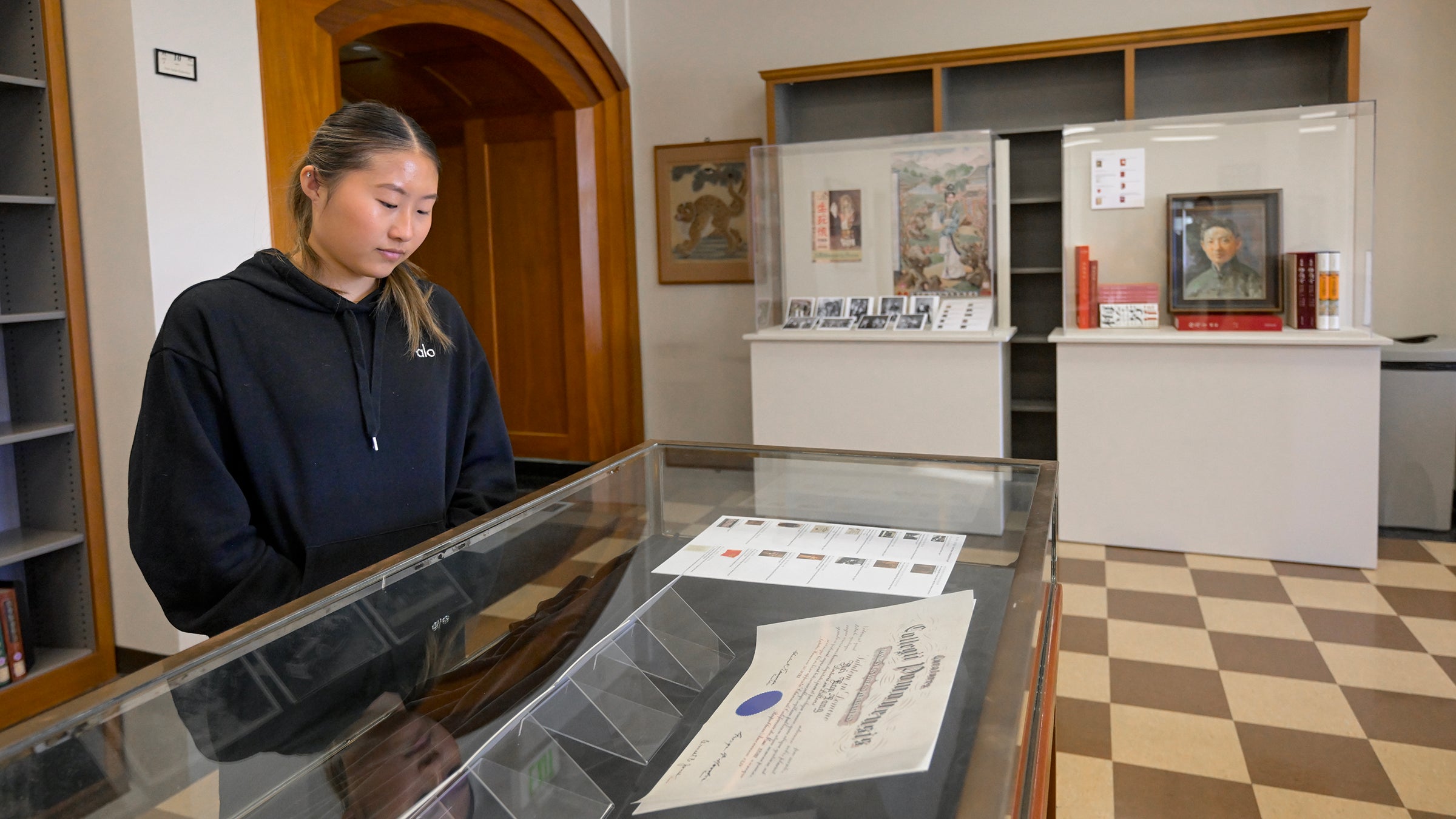
The exhibition, which was also supported by the USC U.S.-China Institute, USC East Asian Studies Center and the USC Center on Public Diplomacy, will be open until Dec. 20.
All exhibits have been provided and donated to USC by the China National Academy of Arts formerly known as the China National Academy of Theatre Arts, where Mei served as inaugural president from 1951 to 1952.
“The USC East Asian Library’s extensive collection of Chinese and other East Asian materials makes this exhibition particularly fitting,” said Tang Li, head of the USC East Asian Library. “We look forward to hosting more exhibitions that foster cultural exchange on campus.”

